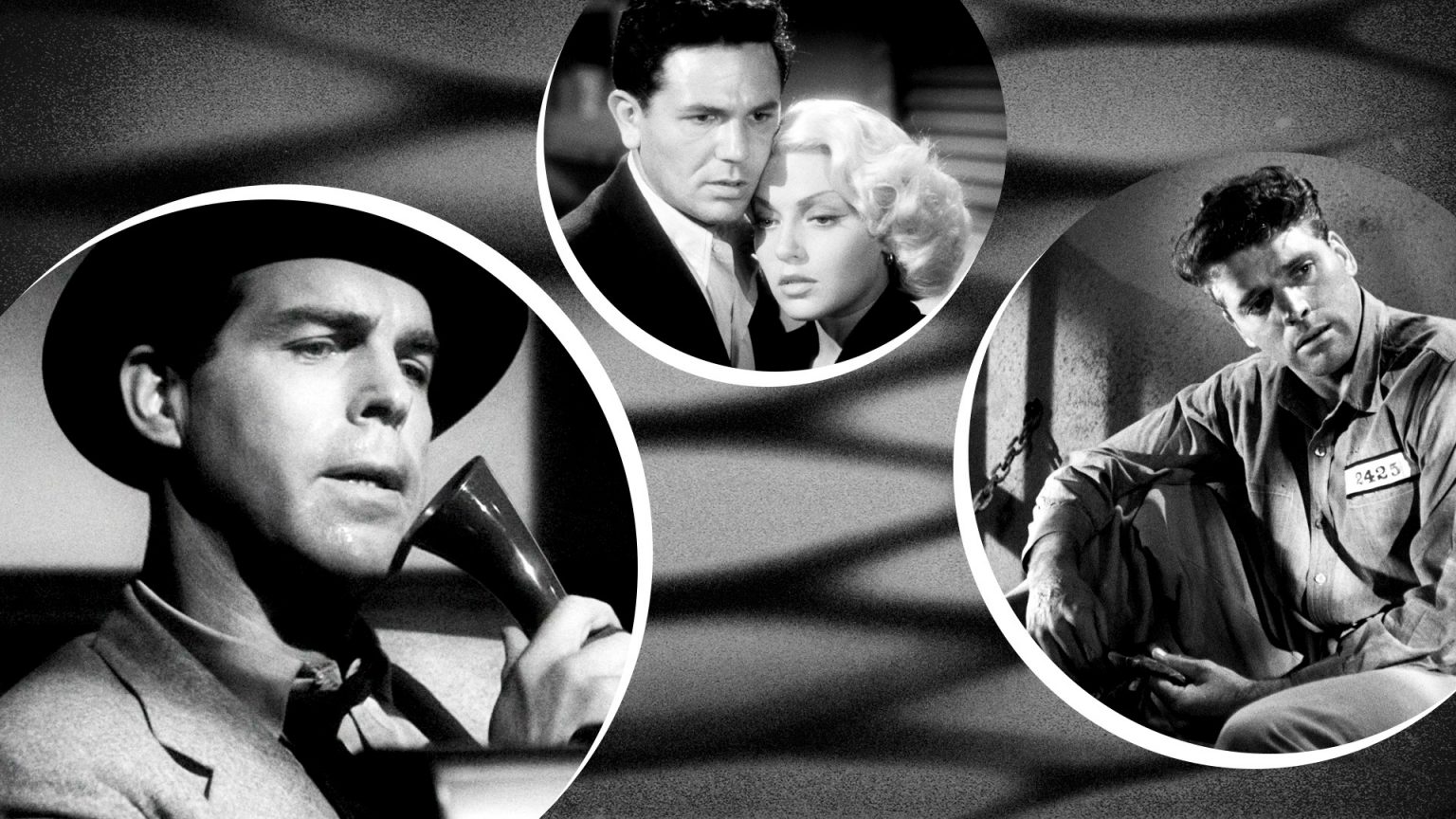Femme Fatales, hard-boiled dialogue, chiaroscuro lighting, cynicism, and violence are all well-known staples of film noir (translated from French to English as “black film”). And along with this list of defining characteristics are the detectives, private investigators, and gangsters that make up the genre’s leading anti-heroes. Maybe it could be considered a subgenre, then, of noir when one of these movies features an insurance agent as the lead character. So what does insurance have to do with gangsters, tough thugs, chain-smoking detectives, and double-crossing dames?
Following in the footsteps of German Expressionism, and picking up on the social and class commentary written about by the pulp authors of the era, a film noir set the template for how genre film can provide social commentary. It’s no coincidence that many of the classic noirs were made during, and directly after, World War II, and were directed by Jewish and European immigrant filmmakers. Noir filmmakers subtly (or not so subtly) direct their films to show the racism, sexism, wartime trauma, and xenophobia present in society. Just watch Fritz Lang‘s Fury (1936) — one of the first examples of film noir — which explicitly shows the violence Americans can direct towards “outsiders.” It’s a movie that’s sadly more relevant than ever.
The “Insurance Noirs” are interested in these ideas as well, yet they are more fixated on the way money and the pursuit to make enough to survive in America’s “dog eat dog” society drives people toward crime.
Billy Wilder’s Double Indemnity follows insurance salesman, Walter Neff (Fred MacMurray), who falls madly in lust with rich housewife Phyllis Dietrichson (Barbara Stanwyck). Aware of his desire for her, she devises a plot to kill her husband and make it look like an accident. Then, with the help of Neff’s stature within the insurance company, Phyllis can receive a massive insurance payout, which would allow Neff and Phyllis to elope.
Interestingly, the cops never get involved in Phyllis’ husband’s death. Instead, Neff’s boss and sometimes confidant (played by the always great Edward G. Robinson) is the one who first picks up on Neff’s scheme. By removing the police from the situation, and making the insurance agents the investigators (as well as the culprit), the film points to how the murder isn’t the real thing at stake in this situation. Instead, it’s whether Dietrichson is worthy of the insurance company’s money (and whether her husband’s death is worth paying out for). It’s a damning statement on what America and its citizens prize the most: Money.
Robert Siodmak’s The Killers also puts an insurance agent in the center of the film’s murder plot. After the killing of Swede (Burt Lancaster), insurance agent Jim Reardon (Edmond O’Brien) is tasked with tracking down the beneficiary of the $2,500 policy. Along the way, and with the help of his detective friend, Reardon pieces together what transpired.
However, while the insurance agent ultimately discovers the plot, and eventually does get the police involved, The Killers is another fascinating example of how money, not the crimes at hand, drives the investigation into the killing. If it wasn’t for Reardon’s efforts, and the insurance company’s unwillingness to hand out $2,500 for no reason, Swede’s death would never be solved.
It could be argued that the banality of an insurance agent’s day-to-day job is what ultimately leads people like Neff to a life of crime, or in Reardon’s case, to act as if he’s a detective.
So it would seem that if you are embroiled in a murder, your best bet might be to call your local insurance agent. They’ll solve the case. Or help you get away with it.




